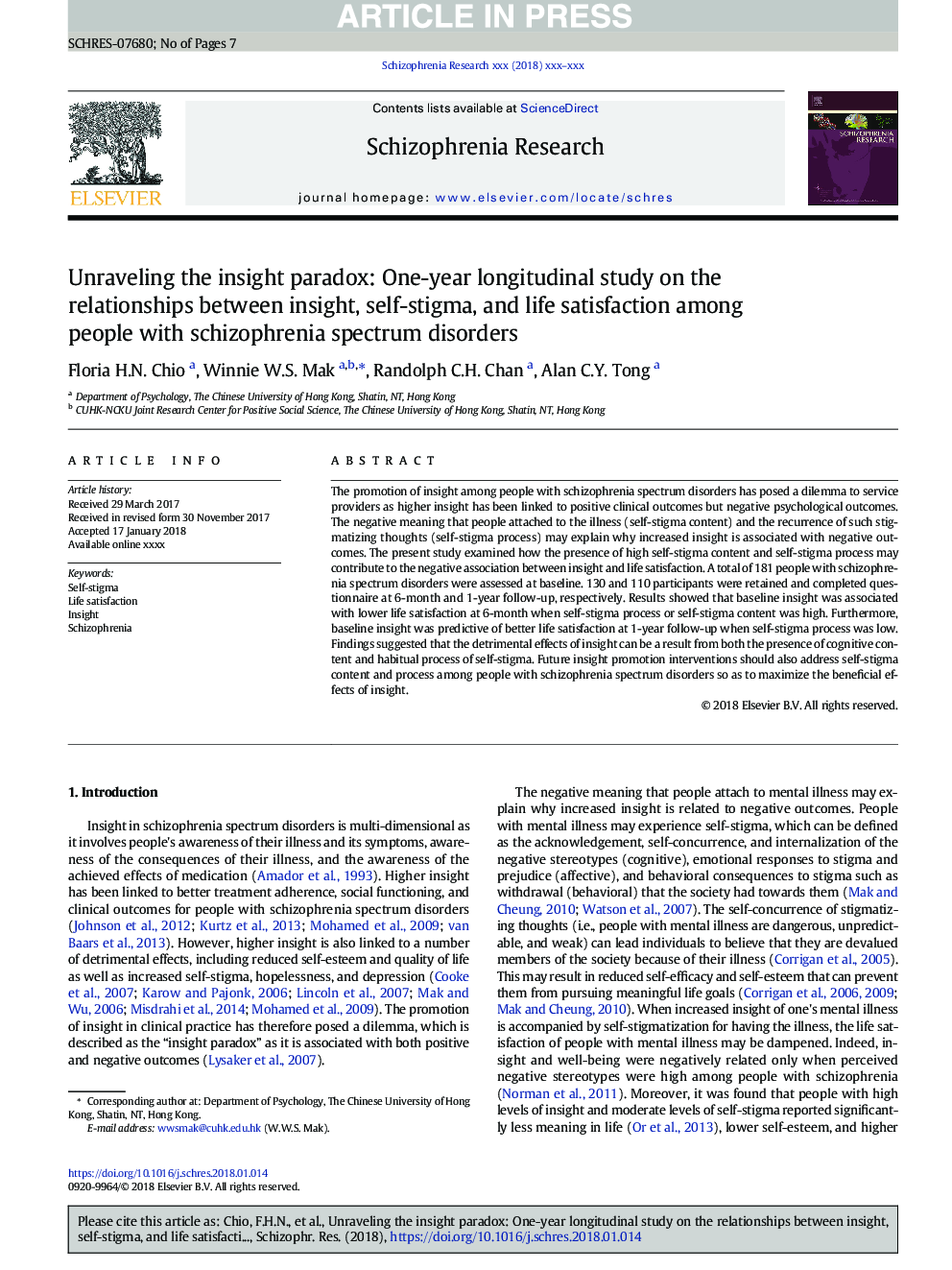| Article ID | Journal | Published Year | Pages | File Type |
|---|---|---|---|---|
| 6820612 | Schizophrenia Research | 2018 | 7 Pages |
Abstract
The promotion of insight among people with schizophrenia spectrum disorders has posed a dilemma to service providers as higher insight has been linked to positive clinical outcomes but negative psychological outcomes. The negative meaning that people attached to the illness (self-stigma content) and the recurrence of such stigmatizing thoughts (self-stigma process) may explain why increased insight is associated with negative outcomes. The present study examined how the presence of high self-stigma content and self-stigma process may contribute to the negative association between insight and life satisfaction. A total of 181 people with schizophrenia spectrum disorders were assessed at baseline. 130 and 110 participants were retained and completed questionnaire at 6-month and 1-year follow-up, respectively. Results showed that baseline insight was associated with lower life satisfaction at 6-month when self-stigma process or self-stigma content was high. Furthermore, baseline insight was predictive of better life satisfaction at 1-year follow-up when self-stigma process was low. Findings suggested that the detrimental effects of insight can be a result from both the presence of cognitive content and habitual process of self-stigma. Future insight promotion interventions should also address self-stigma content and process among people with schizophrenia spectrum disorders so as to maximize the beneficial effects of insight.
Related Topics
Life Sciences
Neuroscience
Behavioral Neuroscience
Authors
Floria H.N. Chio, Winnie W.S. Mak, Randolph C.H. Chan, Alan C.Y. Tong,
